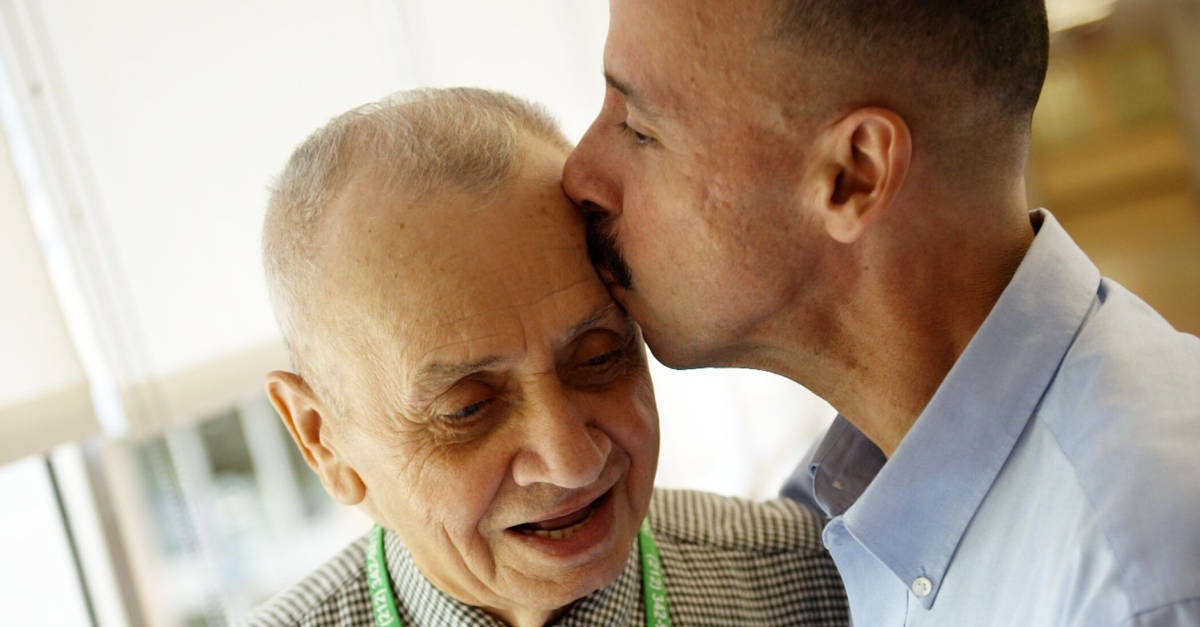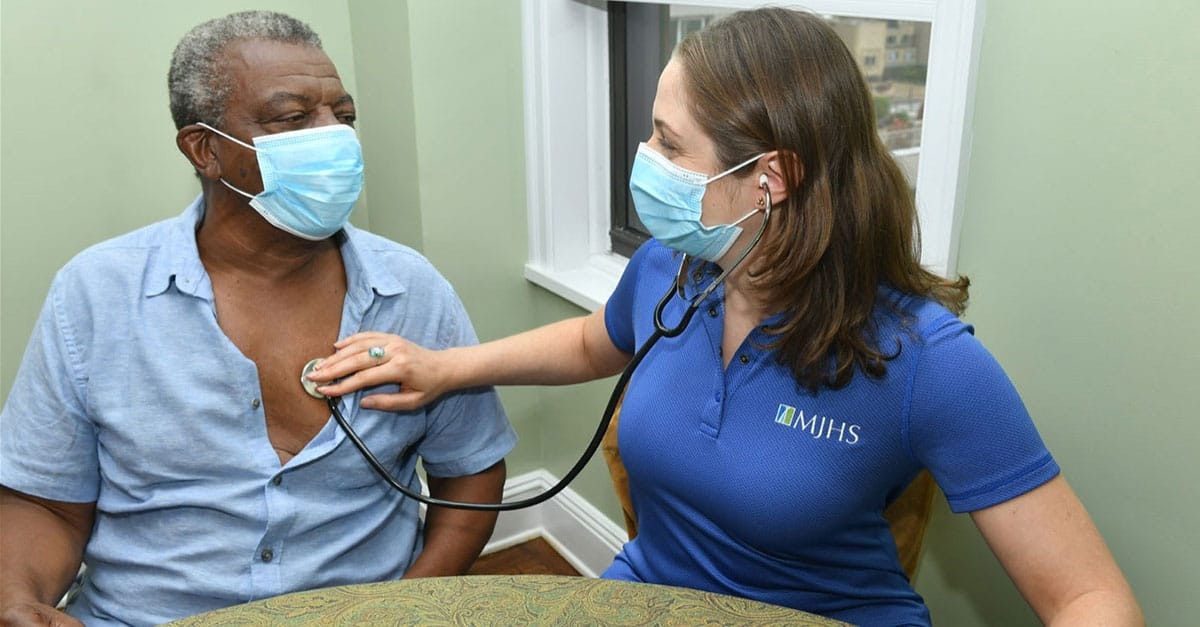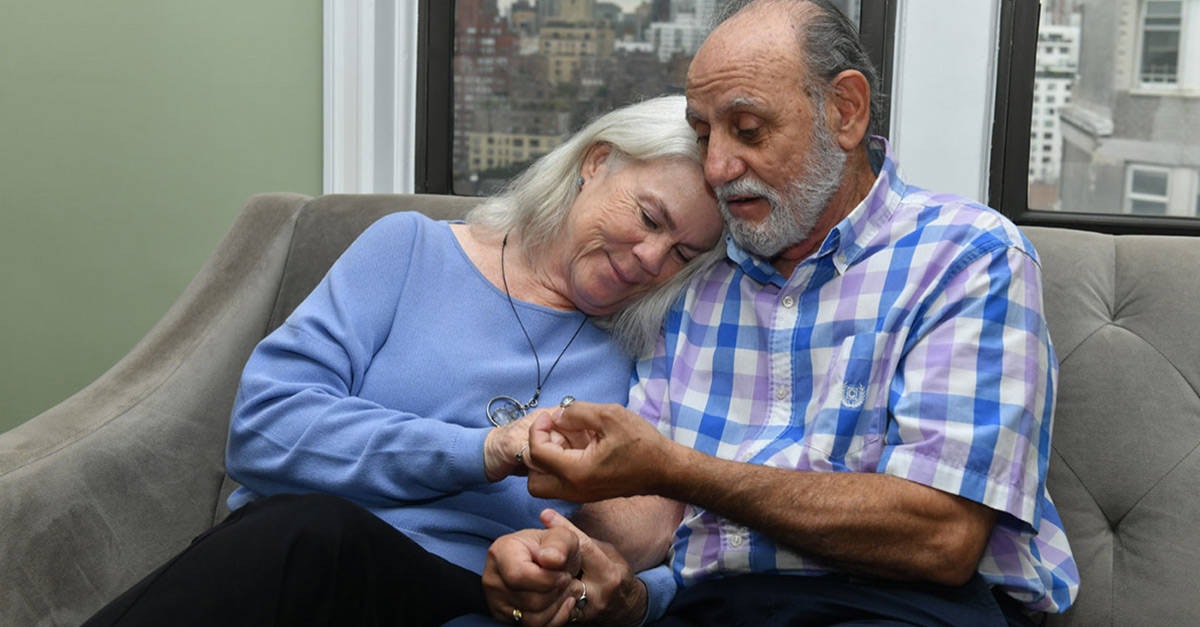Caring for a Loved One with an Advanced Illness

Caring for someone suffering from a chronic or advanced illness can be very difficult.
Suddenly you become inundated with information and instructions. Everyone has a different opinion, but no one has the answer you want to hear. We understand.
MJHS Hospice is dedicated to guiding you through this process on your terms. The resources in this section are a compilation of questions frequently asked by caregivers. We hope that we can be a source of support and clarity during this challenging time.
Need Hospice Care?
Contact 212-420-3370
Levels of Hospice Care
There are four levels of hospice care. Depending on the level of care needed, you may be required to be transferred to an alternate care setting. Your level of care will […]
Getting Started with Hospice or Palliative Care
Whether you choose to continue curative treatment or transition to comfort-focused care, understanding the process and involving your loved ones can help you feel supported and prepared. Learn some common steps toward getting started with the process.
Hospice and palliative care. What’s the difference?
Hospice and palliative care are two ways of helping patients with serious conditions. Both offer comfort and compassionate care and focus on improving quality of life by addressing distressing symptoms, which may include pain management. So what is the difference between the two?
What to Expect When Enrolling in a Hospice Program
Enrolling in a hospice program is a significant step in ensuring compassionate, supportive care for yourself or a loved one when approaching end-of-life. Understanding the enrollment process can help ease concerns and provide a clear roadmap of what lies ahead.
A Guide to Hospice Care
Hospice care, also referred to as comfort care, is a specialized level of support designed for you or your loved one if you have an advanced illness, a prognosis of six months or less and have chosen to stop curative treatments.
A Guide to Palliative Care
Palliative care is specialized medical care designed to help patients manage the symptoms and challenges associated with a serious illness.
Constipation: A Crucial Conversation in Hospice Care
Every patient receiving hospice care will encounter constipation at some point during their illness. Get some answers on what to do.
Navigating Pain Management in Hospice Care
Opioids are commonly prescribed in hospice care due to their effectiveness in alleviating pain and their versatility in administration. Learn more
How to Comfort a Loved One Receiving Hospice Care
Comforting a loved one receiving hospice care can be a profoundly emotional and uncertain experience. Here are some gentle ways to offer your loved one comfort.
5 Tips for Managing Pain Medications in Hospice Care
Witnessing loved ones in pain can be stressful for caregivers, but there are steps to improve comfort. Here are five tips for easing their discomfort at home.
How Volunteers Can Help Caregivers
Providing hospice care is a team effort. And volunteers, along with their Volunteer Coordinators, are an integral part of this effort.
Social Workers–Breaking Barriers Since 1898
Social work has been a core discipline of MJHS Health System since its start in 1907. Social workers are an integral part of our interdisciplinary team, helping caregivers break barriers by providing support and connecting them to resources in the community.
Protecting Your Loved Ones From Heart Disease
Congestive Heart Failure (CHF), also known as Heart Failure, is when your heart gets damaged and is not pumping enough blood to meet your body's needs. Learn more.
Getting On The Same Page. The Family Meeting.
As a caregiver, you may often feel responsible for making all the health care decisions for your relative who is ill. This feeling comes from the great sense of love and responsibility you have towards your loved one. Including family members in conversations about treatment and goals will help facilitate discussions with the health care team and get everyone on the same page.
Understanding Pediatric Hospice
Understanding Pediatric Hospice Can Be Confusing. We want to make it a bit easier by explaining what it is so you can understand what this kind of care includes and how it may benefit you and your ill child.
Top 5 Myths About Hospice Care
Hospice care is for patients with a condition that gives them less than six months to live. Read the top 5 myths people have about the treatment option.
The Difference Between Hospice and Palliative Care
We want the best for our loved ones. This is why knowing the difference between palliative and hospice care and understanding which meets your loved one’s preferences is useful. While there are many misconceptions, neither palliative nor hospice care necessarily prolongs life, nor do they hasten death. So, what is the difference between the two?
Is Hospice Care Right for Your Loved One with Dementia?
Hospice care is an excellent way to ensure someone with advanced dementia receives the comforting, specialized care they need. This article will help you understand your hospice care options. We aim to offer you the support you need while navigating this next stage in the care of your loved one.
Does Medicare Cover Hospice Care?
Does Medicare cover hospice care? It seems like a straightforward question. Unfortunately, many family members discover that it’s challenging to find a simple answer when they start researching the Medicare benefits their loved ones are entitled to. We hope we can help.
What to Say to a Loved One Who Is Dying
Hospice care can be an uncomfortable topic for many families. Find ways to ease the conversation with your loved ones today.
Helpful Tips for Describing Pain
Pain is very subjective, and it is essential to recognize that no two people experience pain in the same way. This article will provide helpful tips on getting a loved one to describe their level of pain.
Congestive Heart Failure (CHF) and You
Congestive Heart Failure (CHF), also known as Heart Failure, is when your heart gets damaged and is not pumping enough blood to meet your body's needs. Learn more.
Warning Signs of Dementia
Dementia can be a scary word. Learn about the early warning signs and what to do if you're noticing symptoms.
9 Tips for Visiting Someone Receiving Hospice Care
There are things you can do to bring comfort and joy to a person in hospice. We pulled together the following tips from the hospice nurses, social workers, and clergy at MJHS Health System.
Must-Know Words and Phrases Related to End-of-Life Care
Navigating any stressful and significant situation requires effective communication and clear understanding. To help you better understand the various issues that may arise, both in a general and Jewish context, the list below explains the terms you are likely to encounter.
The Role of Art & Music for Patients with Dementia and their Families
Visual art, music, and literature make the world we live in worthwhile. Enjoying the Arts enriches people's lives with dementia and gives them a creative outlet to express their emotions. Learn about the Role of Music and Art Therapy doe people with dementia.
Meeting Veterans Special Needs at the End of Life
Veterans deserve end-of-life support from a care team that knows how to support, uplift, and addresses their unique and unspoken needs. Unfortunately, the strength that served them so well when on active duty often prevents veterans from asking for help. Learn about how MJHS Hospice goes the extra mile for veterans in our program.

























